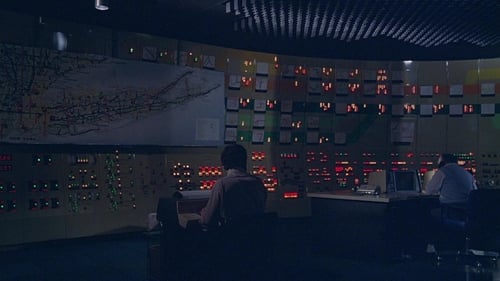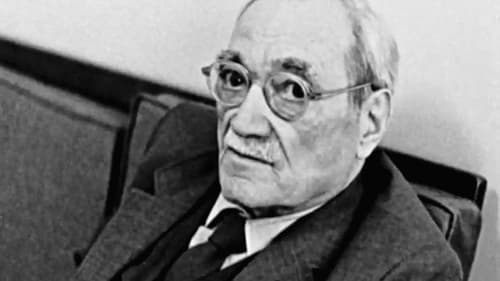David Bairstow
Birth : , Toronto, Ontario, Canada

A black comedy of violent criminals who terrorize apartment dwellers during New York's 1977 power blackout.

Executive Producer
This feature film is a portrait of John Grierson, the first Canadian Government Film Commissioner and founder of the National Film Board in 1939. Interweaving archival footage, interviews with people who knew him and footage of Grierson himself, this film is a sensitive and informative portrait of a dynamic man of vision. Grierson believed that the filmmaker had a social responsibility, and that film could help a society realize democratic ideals. His absolute faith in the value of capturing the drama of everyday life was to influence generations of filmmakers all over the world. In fact, he coined the term "documentary film."

Executive Producer
This short film was created by a group of Indigenous filmmakers at the NFB in 1972 and is essentially a song by Willie Dunn sung by Bob Charlie and illustrated by John Fadden: "Who were the ones who bid you welcome and took you by the hand, inviting you here by our campfires, as brothers we might stand?" The song expresses bitter memories of the past, of trust repaid by treachery, and of friendship debased by exploitation upon the arrival of European colonists.

Producer
At the microphone with Max Ferguson, radio satirist, as he creates his weekday-morning program. Filmed inside his CBC broadcasting booth, this film watches and records as Max ad-libs his way through zany interpretations of news events. His only script is the morning paper and with it he tilts at humbug with a flair that has made him a national figure.

Director
At the microphone with Max Ferguson, radio satirist, as he creates his weekday-morning program. Filmed inside his CBC broadcasting booth, this film watches and records as Max ad-libs his way through zany interpretations of news events. His only script is the morning paper and with it he tilts at humbug with a flair that has made him a national figure.

Editor
This short film offers a picturesque tour through the maple-wooded hills alongside Québec's Lièvre River in autumn to the accompaniment of acclaimed poet Archibald Lampman’s poem Morning on the Lièvre. Trees are ablaze with colour, and their splendor is reflected in the mirrored surfaces of the water, offering a glimpse of the landscape Lampman knew so well through the poet’s eyes and words. Lampman’s poem is read by broadcaster and poet George Whalley, with accompanying score by composer Eldon Rathburn.

Director
This short film offers a picturesque tour through the maple-wooded hills alongside Québec's Lièvre River in autumn to the accompaniment of acclaimed poet Archibald Lampman’s poem Morning on the Lièvre. Trees are ablaze with colour, and their splendor is reflected in the mirrored surfaces of the water, offering a glimpse of the landscape Lampman knew so well through the poet’s eyes and words. Lampman’s poem is read by broadcaster and poet George Whalley, with accompanying score by composer Eldon Rathburn.

Producer
The story of a fishing family, their daily lives, and the son’s wish for a modern boat

Producer
This animated short describes an incident in the War of 1812. Here, colourful drawings give a satirical twist to the engagement between a British ship, the H.M.S. Shannon, and an American ship, the U.S.S. Chesapeake. Sung to guitar accompaniment by Canadian folksinger Tom Kines.

Producer
This short fictional film features the picturesque seaside landscape of Prince Edward Island as the setting for a summer romance between a girl from Winnipeg and a young fisherman from North Rustico, PEI. The young couple visits historic and scenic sites such as Government House in Charlottetown and Cavendish, of Green Gables fame. The film is a classic summertime romance and a nostalgic visit to the delightfully sun-soaked PEI of the past.

Producer
In UPA-esque animation, the NFB entertainingly explains the causes of fish spoilage and the steps required to keep today's catch fresh until it reaches your dining room table.

Director
Highlights of the 1951 visit of Princess Elizabeth and the Duke of Edinburgh to Canada and the United States. - NFB

Script
West German soil resounds again to the tread of marching feet and the rumble of armored vehicles--but this time for the preservation of peace. The film presents an eye-witness account of training activities of the Royal Canadian 27th Infantry Brigade stationed at Hanover--Canada's forceful contribution to NATO ground forces for the defense of Western Europe. A sight-seeing tour of German countryside, an intense mock ground attack, and a military parade on Hanover's public square are the main features. Everywhere in the background is the mute eloquence of the last defeated aggression.

Producer
West German soil resounds again to the tread of marching feet and the rumble of armored vehicles--but this time for the preservation of peace. The film presents an eye-witness account of training activities of the Royal Canadian 27th Infantry Brigade stationed at Hanover--Canada's forceful contribution to NATO ground forces for the defense of Western Europe. A sight-seeing tour of German countryside, an intense mock ground attack, and a military parade on Hanover's public square are the main features. Everywhere in the background is the mute eloquence of the last defeated aggression.

Director
A documentary account of the five-week visit of Princess Elizabeth and the Duke of Edinburgh to Canada and the United States in the fall of 1951. Stops on the royal tour include Québec City, the National War Memorial in Ottawa, the Trenton Air Force Base in Toronto, a performance of the Royal Winnipeg Ballet in Regina and visits to Calgary and Edmonton. The royal train crosses the Rockies and makes stops in several small towns. The royal couple boards HMCS Crusader in Vancouver and watches Native dances in Thunderbird Park, Victoria. They are then welcomed to the United States by President Truman. The remainder of the journey includes visits to Montreal, the University of New Brunswick in Fredericton, a steel mill in Sydney, Nova Scotia and Portugal Cove, Newfoundland.

Director

Writer

Director

Director
Brogan thinks Foreman McCardle has gone clean off his rocker when he has him, Brogan, carted away to the clinic although he’s perfectly well. When Nurse Gilfillan starts to operate - on Brogan’s trailing necktie, baggy-sleeved sweater, cuffed pants and worn-out shoes - horrid tales of workers who had worn similar clothing and been reduced to near-hamburger make everything quite clear.














